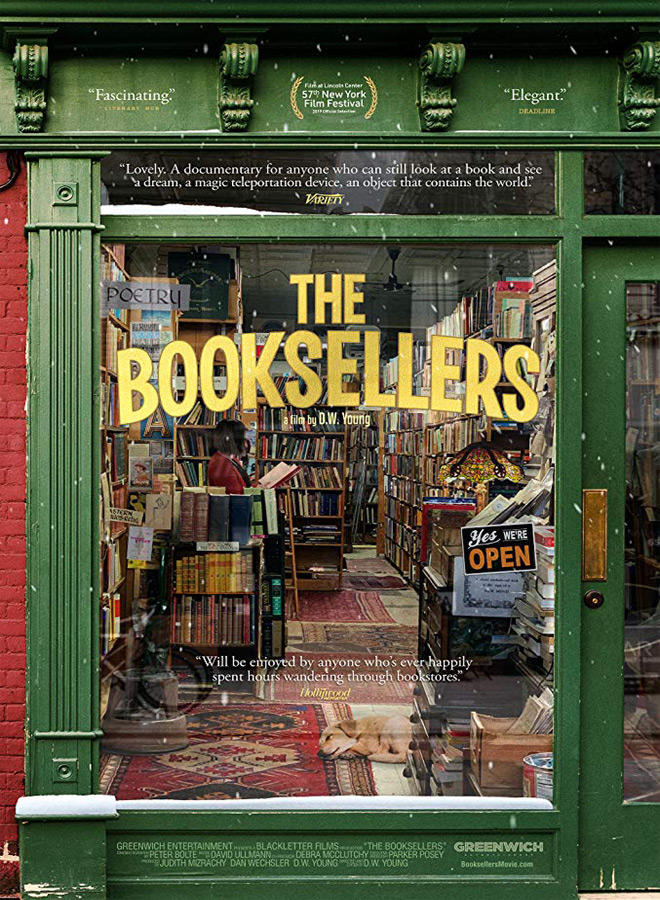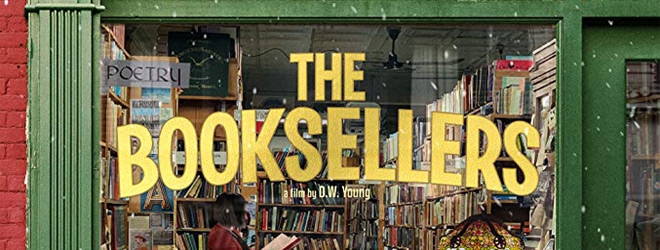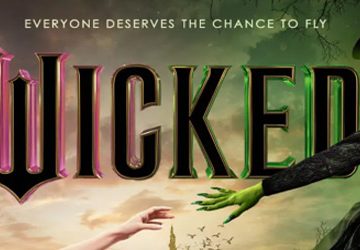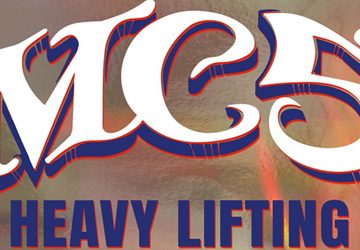Print media has been on the wane with the rise of digital content. Why grab an issue of a long-running magazine when one can read similar – if not the same – content on the web? Are video game manuals all that necessary in a post-GameFAQs world? However, some pieces of print never go out of style, like books.
E-Books on Kindle, Kobo, Project Gutenberg, etc, are a thing, yet there is still a place for the actual, tactile, cover-to-cover-with-paper-between, real deal. There are pros and cons for them, but one little-explored appeal is their history. Finding a first edition copy of Treasure Island by R.L Stevenson would be worth way more than its Kindle price to the right people. Likewise, the King James Bible is no big bank breaker as it is, unless one had a copy from King James’ actual lifetime. This is where The Booksellers comes in, a new Documentary set to open in New York on Friday, March 6th, through Greenwich Entertainment with a national rollout to follow.
Directed by D.W Young (Not Interested 2010, Too Cold to Swim 2018), this Documentary offers viewers a look into the world of antiquarian booksellers. The film showcases the varieties of people involved in trading and preserving classic literature, from Gay Talese (Honor Thy Father 1973. Blind 2017) to Fran Liebowitz (Law & Order series. The Wolf of Wall Street 2013) and more. They discuss the ins and outs of the business, the importance of books in the digital age, and the hunt for the next big find in antique literature. So, is it enough to make the book-averse turn over a new leaf?
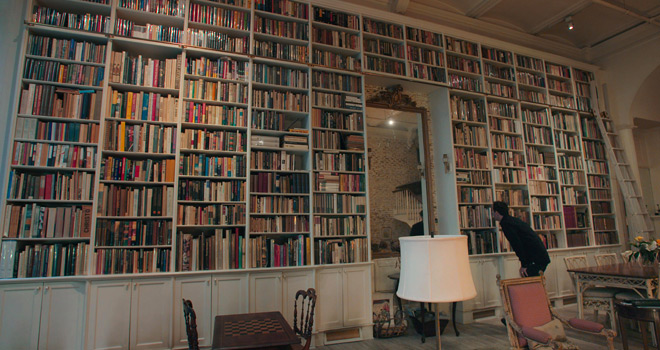
It certainly puts a strong foot forward with its opening minutes. It gives the audience a quick taste of the individuals involved (one man passing up an academic career to follow books), the worth of the books involved – $40 million for an original Gutenberg Bible – and a quick history of the building the New York Book Market takes place in. Clearly this place is no ordinary Waterstones or Barnes & Noble.
The people are no ordinary toffs or millionaires either. They are a little more self-aware of themselves and their expensive interests (“He didn’t cry about [Don Quixote] – well, he cried a little when he found out the price”). The documentary even compares the titular booksellers with the bookstore owners & librarians seen in film. The film argues they are not necessarily the crabby fuddy-duddies or dorks of old, which is true. Still, they are not exactly the youngest, or most stylish figures.
Not by their covers anyway. The Booksellers manages to flick through the pages and find the quirks behind their interviewees. Like the owners of New York’s oldest independent bookstore, the Argosy Book Store. They are 3 sisters who inherited the store from their father, who inherited it from his father, and the store is still going despite offers to sell it off. Oh, and one of their staff is the World Champion at Arkanoid. Each key figure has some bit of spice to them that keeps the proceedings going.
Additionally, The Booksellers does get down to earth in other ways. There is a nice, quick section on the rises, falls and re-rises of independent and used bookstores. Or how dedicated ‘Book Scouts’ would track down rare finds and good deals. They can be quite touching, yet the segments breeze by so quickly that one rarely has much time to absorb all the information before the film moves onto the next topic. Some stick around longer, like the segment on the Schomberg Center, but the pace is a little too brisk overall.
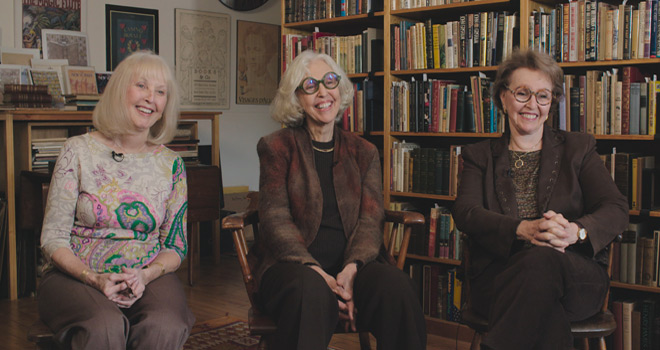
This briskness also affects the credits, or lack thereof. The key figures are introduced by their first names- ‘Dave’, ‘Jim’, etc, and get enough coverage for the viewer to get to know them a bit. The others tend to pop up with little to no introduction to offer their two cents. It would have helped to have at least one name card to introduce them and their importance to the viewer. As it is, the viewer must keep their ears open to piece together enough clues to reveal the speaker’s relevance.
Still, some topics do get more dedicated discussion, like the internet’s effect on the book market, how auctioneering works, the importance of books, and how important the booksellers’ collections are to them. These offer some interesting talks and run through a range of emotions. The internet discussion is particularly interesting as it crops up every now and then and gets the broadest reactions, from annoyance to fear to even enthusiasm.
Ultimately, The Booksellers spreads itself too thin. It talks about a lot; from books as physical objects, to preserving the efforts of female authors and hip-hop culture. There is also how a bookstore is run, how an auction is run, how books are collected, etc. That in mind, you only gets a taste of each topic, and little reference to work with if they want to learn more. If it went into more depth on just a few areas, it would have been a stronger film. As it is, despite its interesting moments and passion, The Booksellers is a gateway to its many subjects and that is why Cryptic Rock gives it 3 out of 5 stars.
